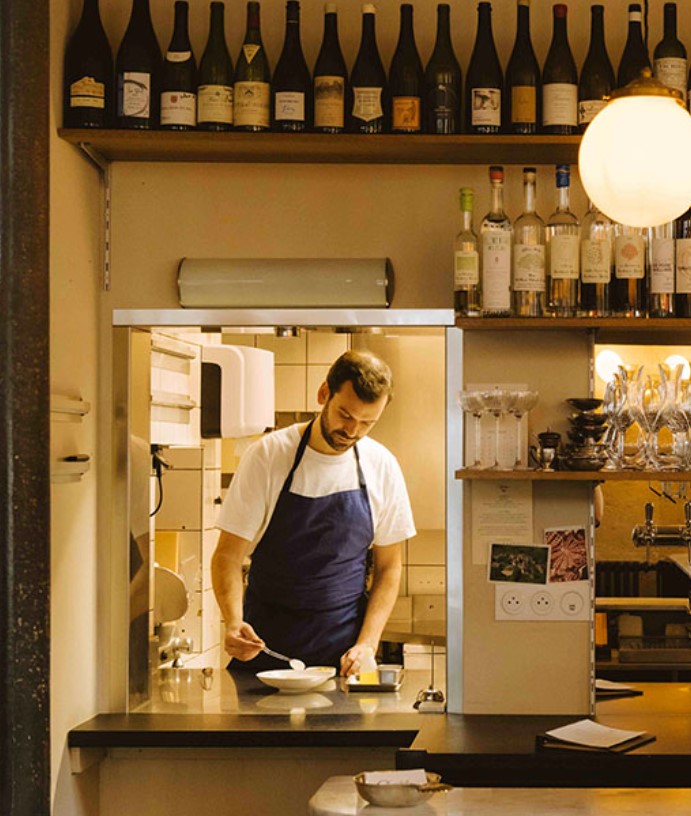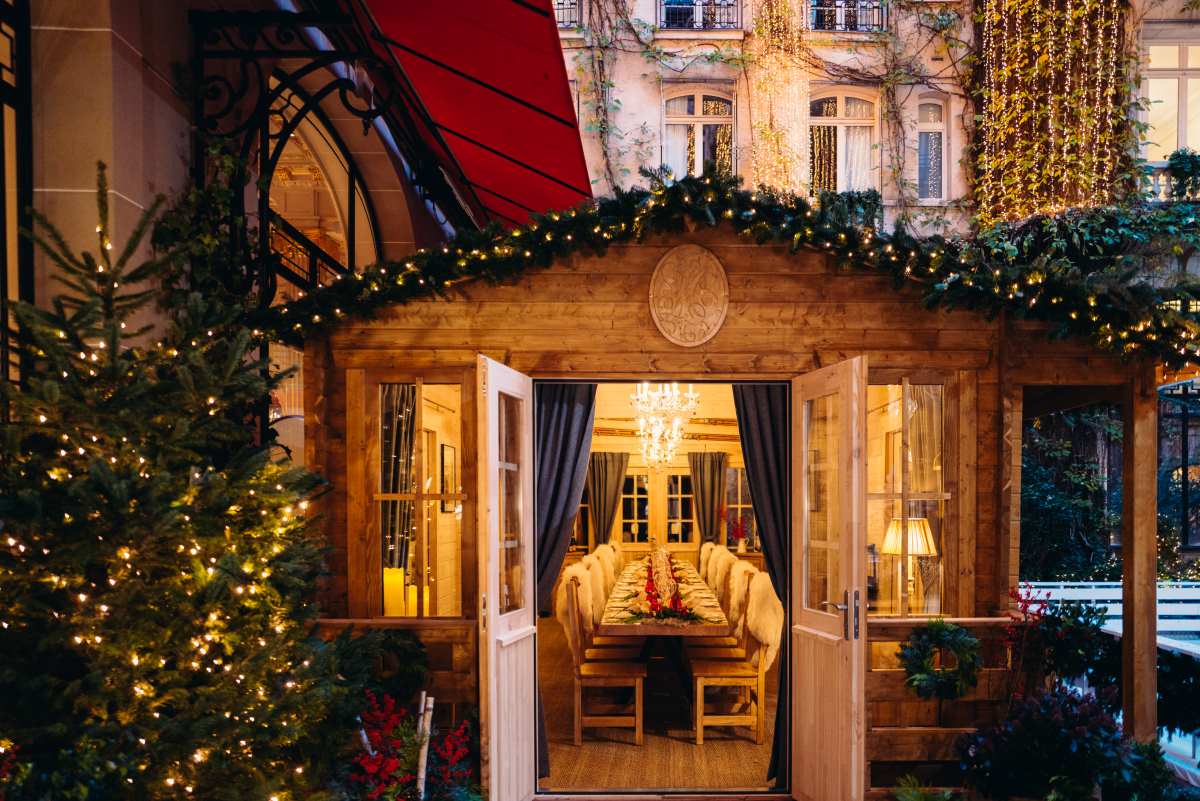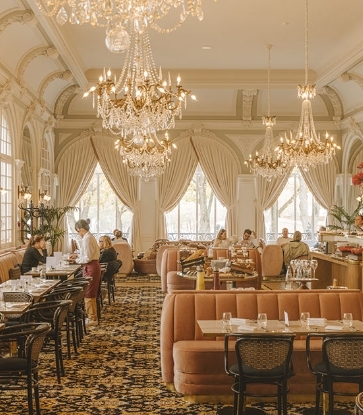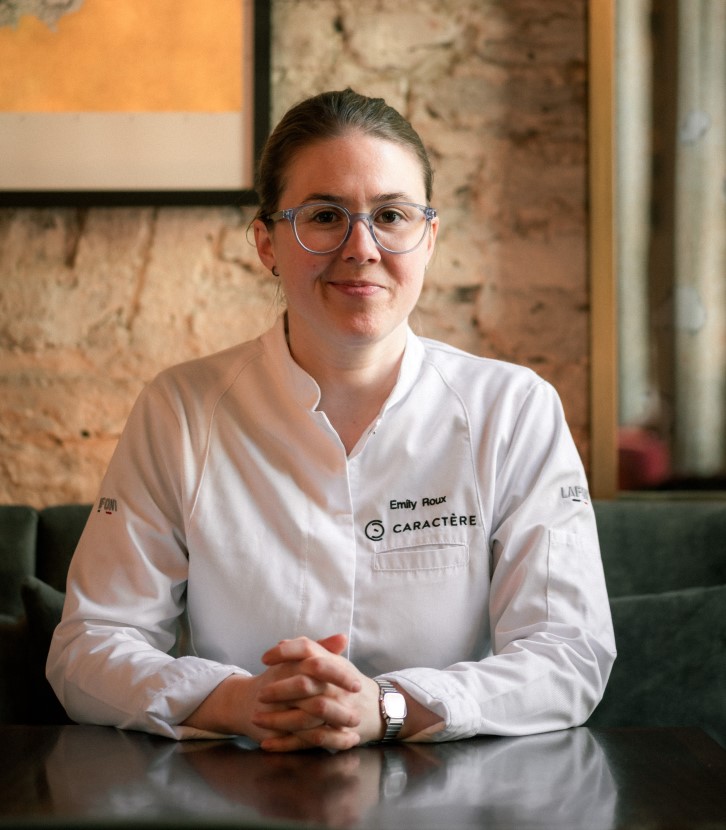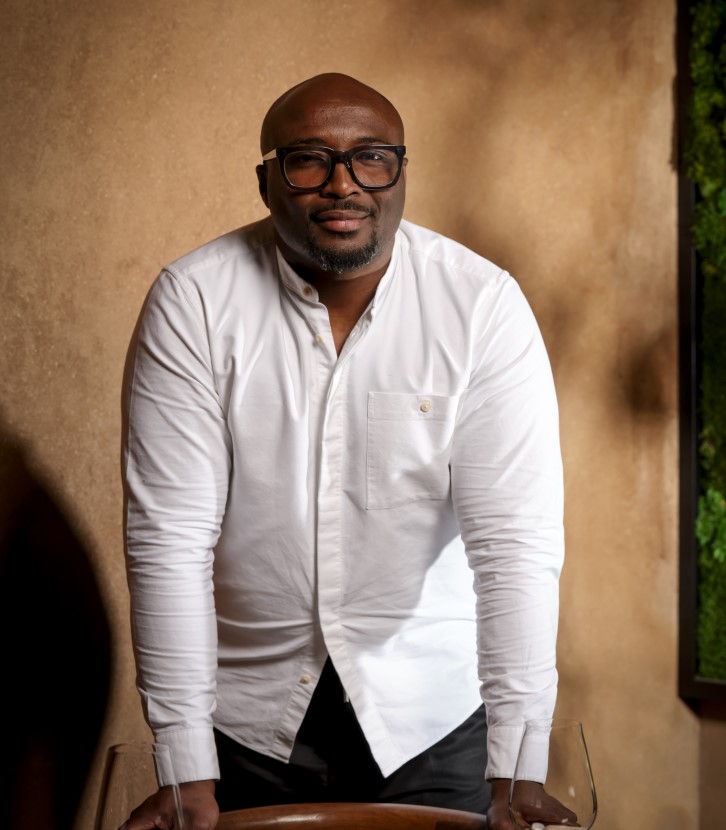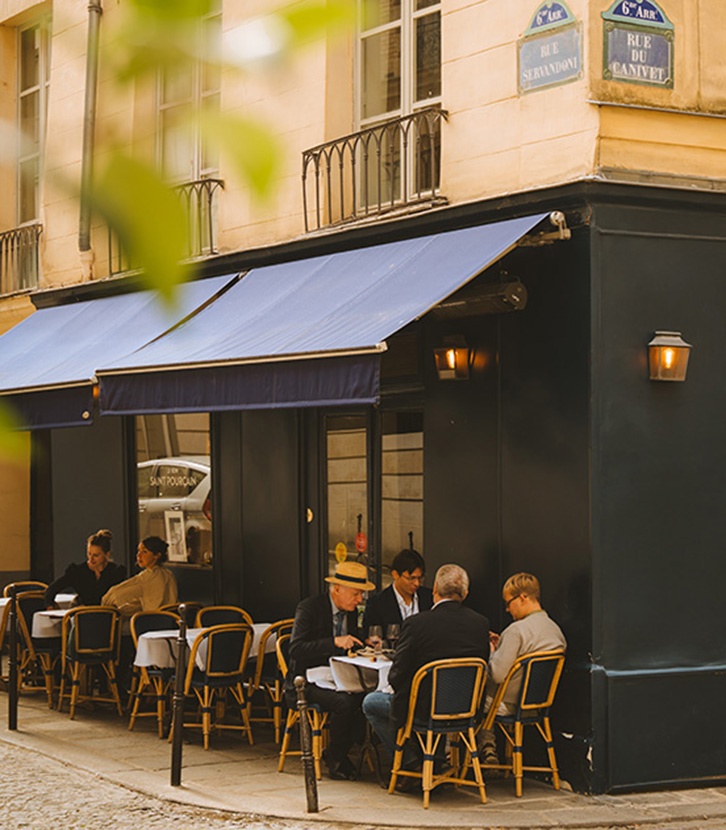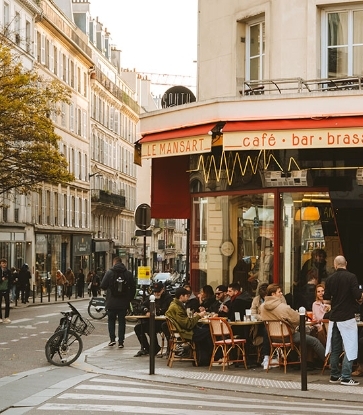On the banner of Pierre Gagnaire’s website, above the scrawl of his signature, is a statement in French that translates to: “The measure of a cuisine is not by its tradition or modernity but by the care of the chef”. He is the iconoclastic chef at the forefront of the French fusion cuisine movement and made his name tearing down the conventions of classic French cooking by introducing surprising juxtapositions of flavours, textures and ingredients.

Born in Apinac in the French Loire region to a chef father who ran a Michelin-starred restaurant, Gagnaire’s first real foray into the culinary world was as a 15-year-old spending his summer vacation working in the restaurant of the late Paul Bocuse. The experience lit the fire of his lifelong passion with the culinary arts and marked the start of his career. In 1976 — with several years of experience working in restaurants in Lyon and Paris, serving in the French navy as a chef-admiral and spending three months hitchhiking across North America — Gagnaire returned to his father’s one-Michelin-starred restaurant Le Clos Fleuri in in Saint-Étienne.
When his father retired and closed the family restaurant in 1981, Gagnaire struck out on his own and opened an eponymous restaurant in the centre of Saint-Étienne. “Just like anybody who is young and who starts his own business, I was enthusiastic but also reckless. I believed in my talent but, at the same time, I was worried about the response,” he says.

His new restaurant quickly climbed the ranks again, receiving two stars off the bat in 1997 and a third in 1998, which it has maintained till now. Since then, Gagnaire has opened a slew of restaurants worldwide including: two-starred Sketch in London, Gaya in Paris, Twist in Las Vegas and eponymous restaurants in Tokyo, Seoul and Hong Kong.
When asked what his secret was to maintaining the Michelin stars for more than two decades, he replies: “There is no secret; it is purely the energy and attention to detail. Also, I made a commitment to maintain the restaurants for my teams who have always been by my side since the beginning of this adventure.”

We caught the French icon at his two-Michelin-starred Hong Kong outpost, Pierre, at the Mandarin Oriental, Hong Kong, where he shares the journey of his career marked with Michelin stars.
What was your first encounter with the MICHELIN Guide?
Actually, I always lived with the MICHELIN Guide because my dad already had a Michelin star. I have always found it so natural to be in this kitchen environment since I was a child. My parents were very busy with their restaurant. We all lived with the staff but it did not bother me as we could enjoy considerable freedom.
What was it like when your restaurant received a Michelin star for the first time in 1982?
I was, of course, very pleased with receiving my first Michelin star. It was at that time that I decided to create my own culinary universe but for real, I was not that confident. I was actually extremely stressed out.
How did you celebrate?
There was no celebration. I heard about it at 10am on a Monday, as I remember. Then I picked up my kids from school and we all went for a pizza.
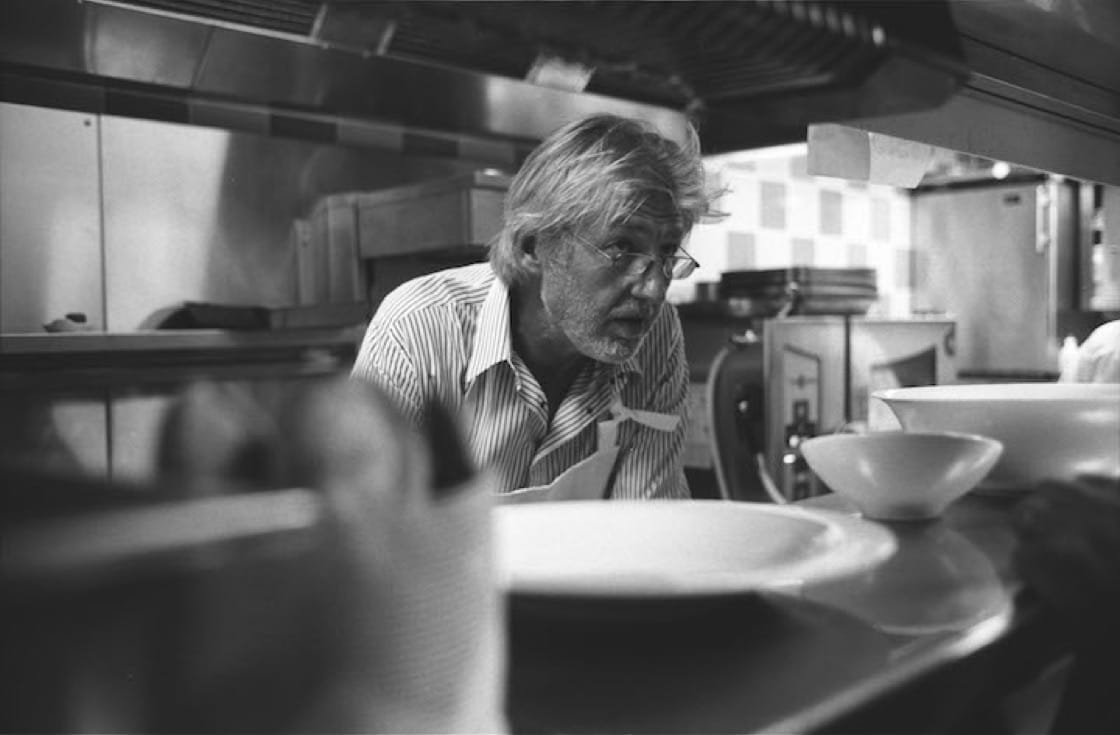
How did you feel when you won three Michelin stars in 1993, 10 years after you opened the restaurant?
When one achieves three-Michelin-star status, you will be overwhelmed with a very special emotion. This recognition will give you an indescribable energy and justify all the sacrifices and frustration that you have had for many years. The three-Michelin-star status, of course, reinforced my belief and confirmed that I made the right culinary choices as a 15 year old. Also, at that moment I thought the achievement would provide me with a bit of serenity in finance but unfortunately it didn’t work that way.
As a chef, what does having a Michelin star mean to you?
The MICHELIN Guide is the most influential gastronomic rating in the culinary world. It is widely recognised by the public, professionals and potential investors. I am greatly appreciative and thankful for the MICHELIN Guide giving me again the recognition, pride and joy through the stars. I have to admit, at that time and even today, I use all my energy and make the greatest effort to make sure that my restaurants and food live up to their standards.
What advice do you have for young chefs?
I have no specific advice for young chefs. Each and every one of them has their own fate, life, desires and ambition.







